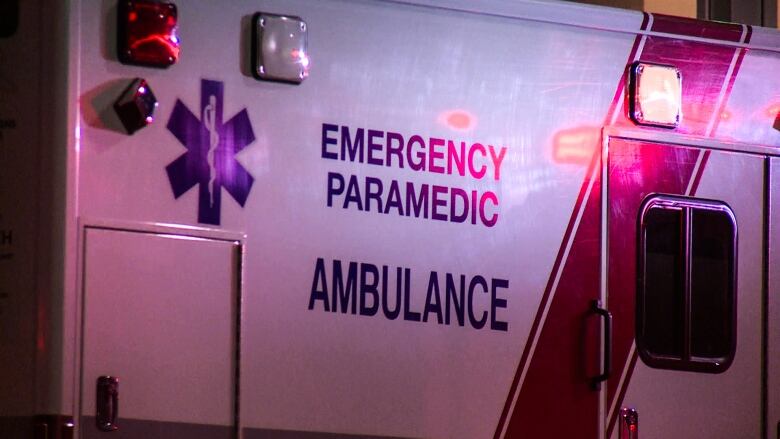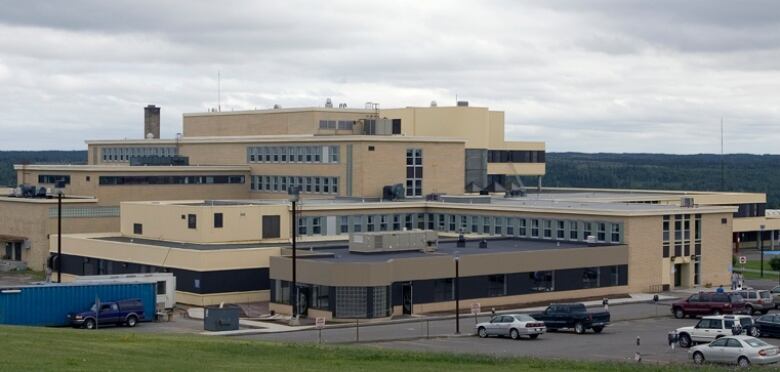Thousands of people in a huge stretch of southern Newfoundland are losing their last doctor
Emergencies in Coast of Bays area will be diverted 200 km away

The Connaigre Peninsula Hospital in Harbour Breton is losing its only doctor at the end of the month, leaving thousands of people on Newfoundland's south coast without emergency health care.
It's tough news for communities connected to Route 360 in the Coast of Bays areathat rely on the hospital because the facility will be put on full diversion: ambulances will now have to travel over 200 kilometres northto the nearest hospital, in Grand-Falls Windsor.
"It means that every call somebody makes for an ambulance, whether it's a cut or a heart attack, has to go to Grand Falls for every trip," Hermitage-Sandyville MayorSteve Crewetold CBC News on Tuesday.
"It means our ambulances are gone a lot longer and it's a lot harder on the employees because they'll get another call and have to go right back to Grand Falls again."
It's not only his community that will feel the impact.The loss affects thousands of people in more than a dozen communities scattered across hundreds of square kilometres, ranging from the St. Alban's area down to Harbour Breton, as well as towns and villages as far west as Bay d'Espoir and east to Belleoram.
"It's not only our ambulances. It's the ambulances in the Fortune Bay-North Shore area and theBay d'Espoirarea," he said.
"What it's going to do, it's going to overburden the Grand Falls hospital. Between Gander and Grand Falls now they're all going to be getting rural ambulances coming because they're all going to be on full diversion while there's no doctor available."
Temporary solutions
Alocum a temporary replacement doctor will be in place in May.
But that's all for now, Crewe said, adding he has had several meetings with Central Health to talk about the problem.
"When the full diversion comes we're not sure. We'll get an email or text message on Friday saying it's going to be for Monday or whatever days. It's very stressful," he said.

Dr. David Carroll, Central Health's interim vice-president of medical services, said full diversion is a worst-case scenario.
"When we have no physicians in Category B sites we have two options:one is a virtual emergency service and one is a diversion of service," he said.
"What pushes us into having to use that last resort is when we have no health-care providers, including advanced-care paramedics or respiratory therapists that are able to manage a patient who arrives at the health-care facility who is extremely unwell and needs hands-on skills that simply can't be done over a virtual connection."
Carroll said Central Health is trying to place health-care providers in the area to bridge the gapbut the health authority can't ask its advanced-care paramedics,respiratory therapists or advanced trained nurses to remain on call 24 hours a day, so there's frequently a mix of divergent and virtual services.
Increased volume
Carroll said it's hard to predict how many patients will be funnelled into Grand Falls-Windsor or nearby Gander but, he said, divergent care isn't a new problem for the area.
"The Category A facilities in both of those communities are definitely feeling a strain of having to accept increased volumes," said Carroll.
"We're trying tonotoverburden people knowing that people are feeling overburdened in the last two or three years in particular."
Carroll said Central Health is trying to recruit physicians, but that's only one part of the larger health-care picture.
The health authority has posted positions for advanced-care paramedics andrespiratory therapists to support rural facilities, he said, and there's an ongoing effort to encourage expat Newfoundland and Labrador health-care professionals to return home along with a campaign to recruit international health-care professionals.
With files from The St. John's Morning Show












_(720p).jpg)


 OFFICIAL HD MUSIC VIDEO.jpg)
.jpg)



























































































